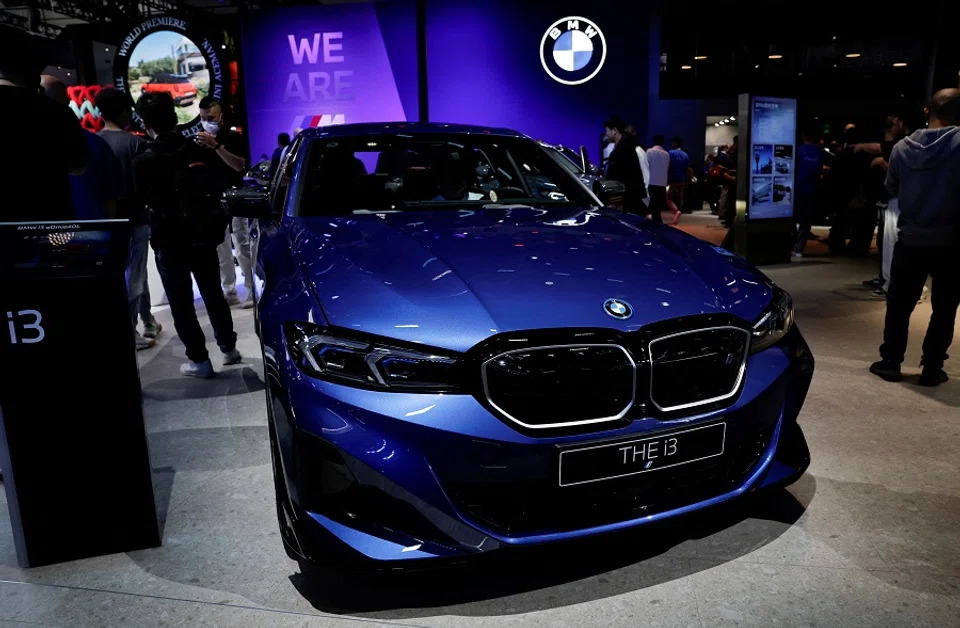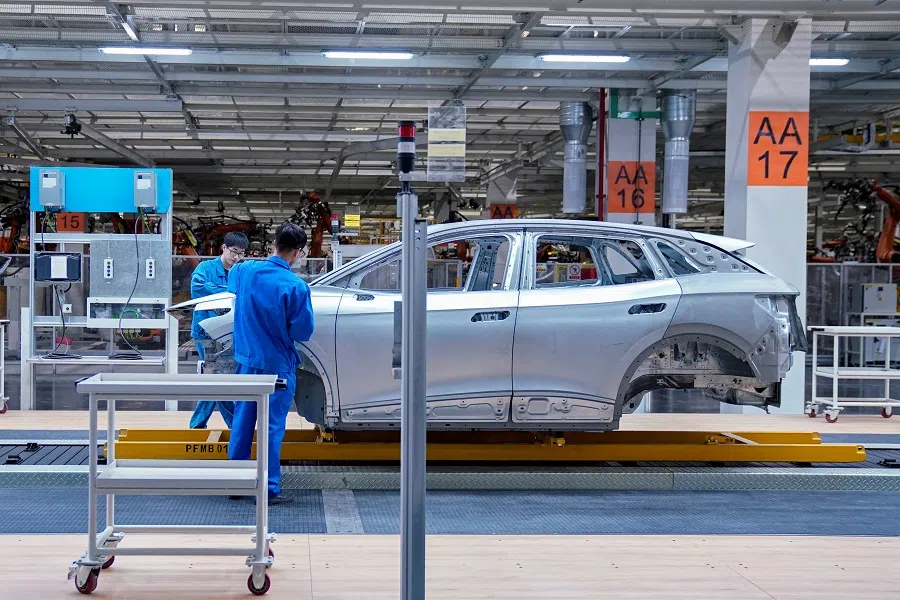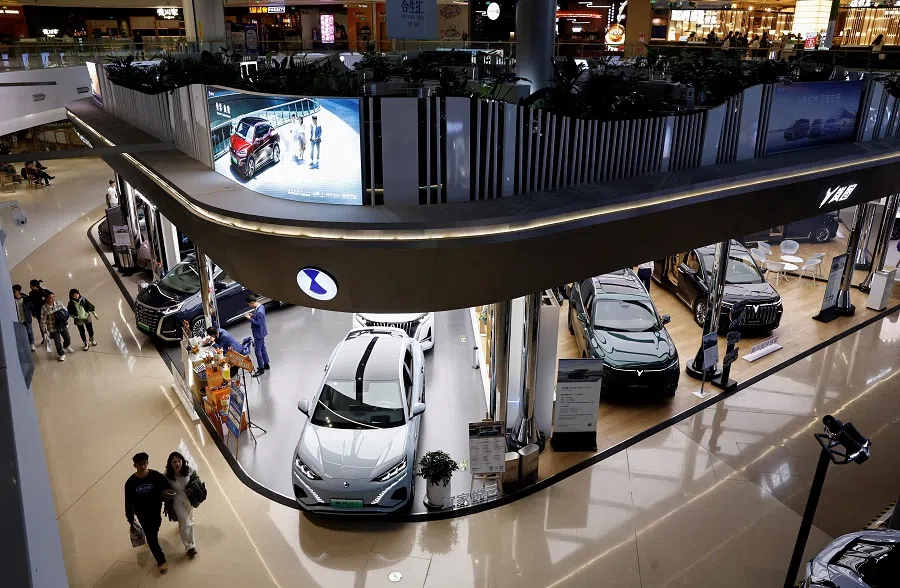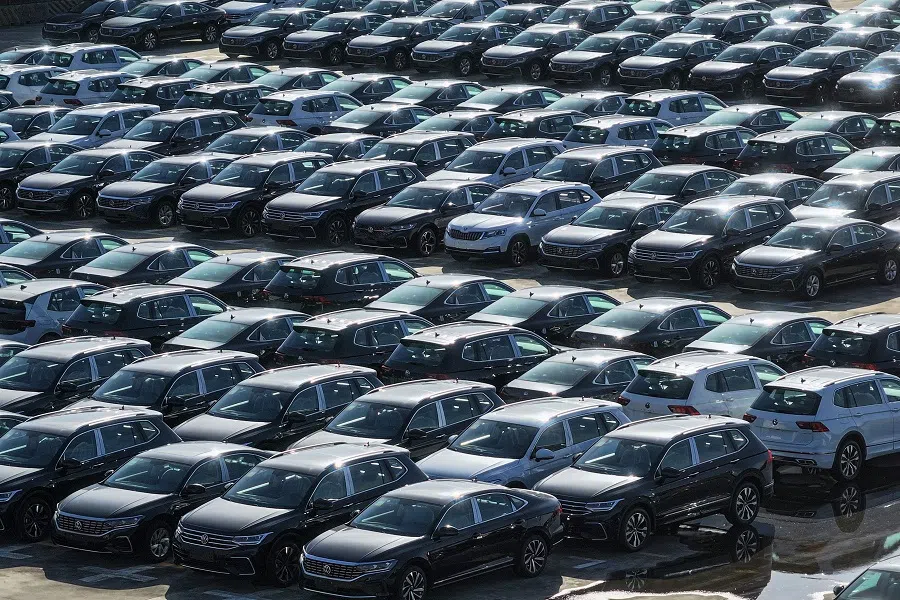German automakers ‘de-risk’ by upping their game in China
While the West seems to be pursuing a decoupling and de-risking strategy against China, German automakers are doubling down on their presence there. Lianhe Zaobao associate editor Han Yong Hong looks into this trend.

While China’s foreign direct investment has seen net outflows twice in one year, German companies are going against the trend and increasing investment in China.
This may be good news for China, but anxiety and doubts have come up in Germany and other European countries, with starkly contrasting reactions between China and the West.
Replacing one risk with another
According to reports by the Financial Times and German media citing German central bank data, Germany’s direct investment in China reached 2.48 billion euros (US$2.7 billion) in the first quarter of 2024, nearly doubling to 4.8 billion euros in the second quarter.
In total, direct investment from Germany to China reached a new high of 7.3 billion euros in the first half of the year, surpassing 6.5 billion euros in the same period last year. For the previous fiscal year, German companies’ total direct investment in China already hit a record of nearly 12 billion euros.
Many mainstream Western media outlets have sounded the alarm, focusing on how German companies have ignored calls from the Scholz government to “de-risk”, and instead increased investment in China.
The title of a report by French newspaper Le Figaro on 13 August criticised these companies for “suffering from Stockholm syndrome”, implying that they are victims helping their abusers. An editorial in China’s Global Times countered that “the choice of German companies is a silent opposition to ‘over-politicization’”.
In fact, German companies have been increasing their investments in China over the past few years, with major automobile manufacturers like Volkswagen and BMW leading the charge. The reasons are multi-layered.
If they leave China, they would be far away from the NEV research and development (R&D) and production ecosystem, which is increasingly defined by China. Would that not be replacing one risk with another?

On the one hand, these major manufacturers are intensifying their implementation of the “In China, for China” strategy — expanding local production and directly supplying the Chinese market. The goal is to maintain supply chain stability in times of uncertainty and avoid interference from international factors.
On the other hand, amid the challenge of Chinese-made new energy vehicles (NEVs), German traditional manufacturers are feeling a sense of crisis. The speed at which the Chinese market is turning to NEVs and the intensity with which Chinese competitors are reducing costs have caught German companies off guard, and their countermeasure is to set up faster in China, seeking cooperation with Chinese partners for mutual benefit.
Are these German automobile companies not in fact executing their own “de-risking” strategy? While they take into consideration commercial, production, technological and geopolitical factors, including the risks of decoupling between Chinese and foreign markets, and of conflict in the Taiwan Strait, gradually withdrawing or pulling out from the Chinese market is not an option for them.
If they leave China, they would be far away from the NEV research and development (R&D) and production ecosystem, which is increasingly defined by China. Would that not be replacing one risk with another? Such rational considerations might be difficult to grasp without being directly involved.
No choice but to collaborate
In April this year, Volkswagen announced a massive investment of 2.5 billion euros to expand its production and innovation centre in Hefei, to develop two car models with Chinese company Xpeng.
BMW, Volkswagen’s competitor, is not far behind. In the same month, BMW announced an additional investment of 2.5 billion euros in its Shenyang factory to lay the foundation for the localised production of its new generation of cars in 2026. BMW had invested 15 billion RMB (US$2.09 billion) and 10 billion RMB in Shenyang’s NEV and battery projects in 2022 and 2023 respectively, deepening its localised R&D.
Faced with competition from their Chinese peers, German car companies have no choice but to step up their efforts, joining the “involution”(内卷 or excessive competition) alongside Chinese car companies in China to avoid being marginalised in the world’s largest automotive market.
Figures show that NEV sales now account for more than half of China’s total car sales, while established German car companies such as Audi, BMW and Mercedes-Benz, account for less than 10% of the total share in China’s NEV market despite having obvious advantages in traditional fuel vehicles and high-end cars.
... some German companies — probably small and medium-sized enterprises — are still gradually withdrawing or pulling out from China, for reasons including China’s weak economic rebound, insufficient demand and an overly “involuted” market.

Deutsche Welle described the situation in April this year: “At the ongoing Beijing Auto Show, German car brands have lost their former glory. Among the various electric vehicles congesting Beijing’s streets, German cars are nowhere to be seen.”
German car companies that have increased their investment in China have chosen to urgently catch up. Adam Tooze, an academic in world economic history who has been observing China closely in recent years, wrote an article on 14 August quoting a senior manager from a German carmaker, “If we are in the business of making cars we have to be in China. If we aren’t here, we aren’t in the business.”
Only few will survive
Even with the massive investments from major car companies, Germany’s direct investment in China has not surged significantly. This suggests that some German companies — probably small and medium-sized enterprises — are still gradually withdrawing or pulling out from China, for reasons including China’s weak economic rebound, insufficient demand and an overly “involuted” market.
A report released by the Cologne Institute for Economic Research in Germany early this year also found that Germany’s investments in China are mainly funded by the returns from their earlier investments in China. It is essentially a reinvestment in existing production capacity in China, also an implementation of the “In China, for China” strategy.
However, the excessive involution of the Chinese market means only a few strong foreign companies will survive, others will be sacrificed, and many will hesitate.

The dilemma for foreign companies is in avoiding geopolitical risks while relying on China’s cutting-edge technology in specific industries, which is not ideal for their home countries.
Taking German major car companies as an example, they have the ability to lay out production lines in China, which would lead to a significant reduction in Germany’s exports to China, reducing job opportunities for German workers.
Overall, China’s rapidly developing technological strength will be a shield against the “decoupling and chain-breaking” by the West. However, the excessive involution of the Chinese market means only a few strong foreign companies will survive, others will be sacrificed, and many will hesitate.
Whether it is the Western push for decoupling or China’s excessive involution, neither is beneficial in the long run for any party involved.
This article was first published in Lianhe Zaobao as “德国车企奔赴“中国卷””.





